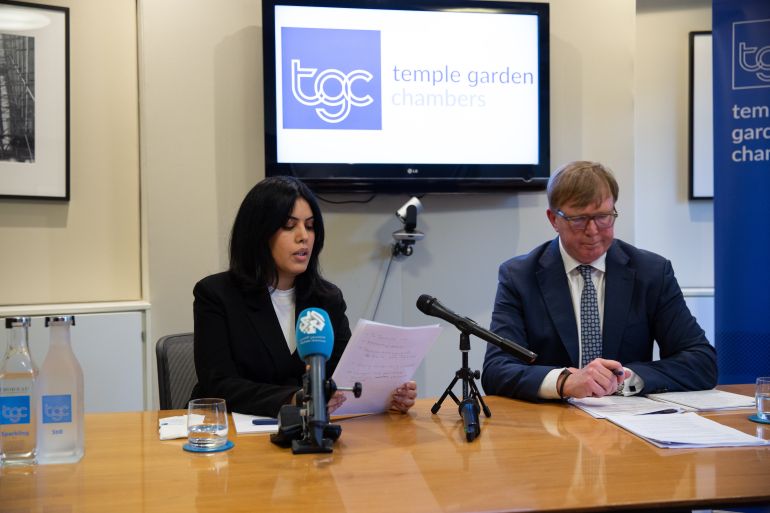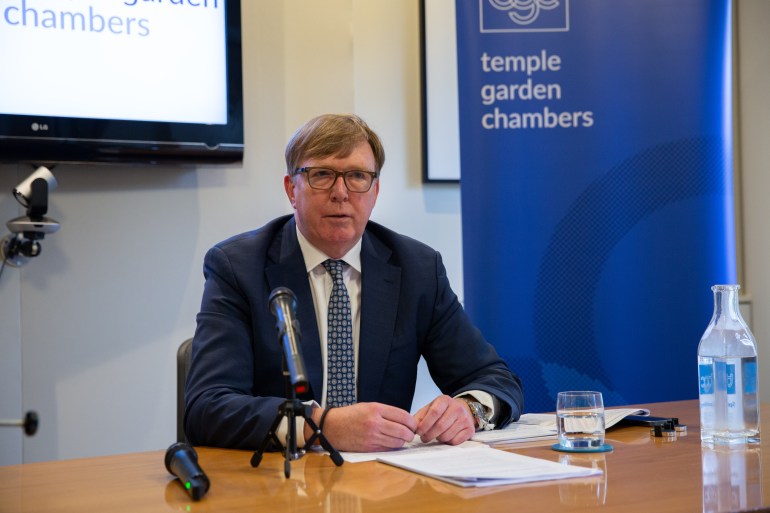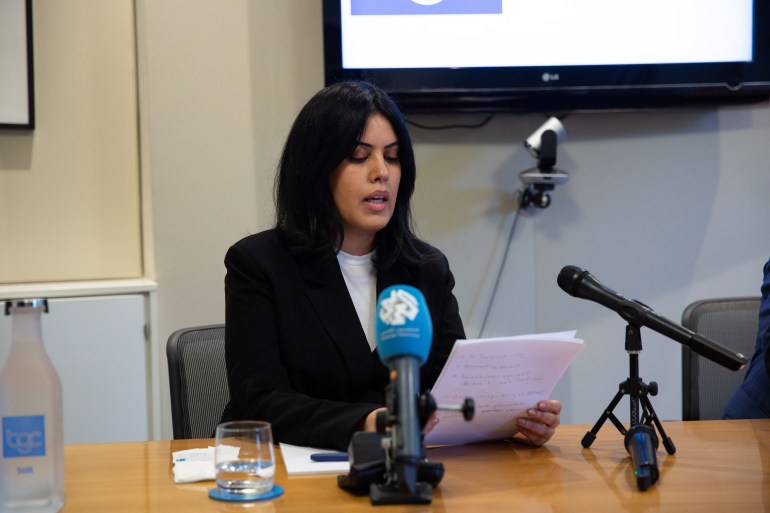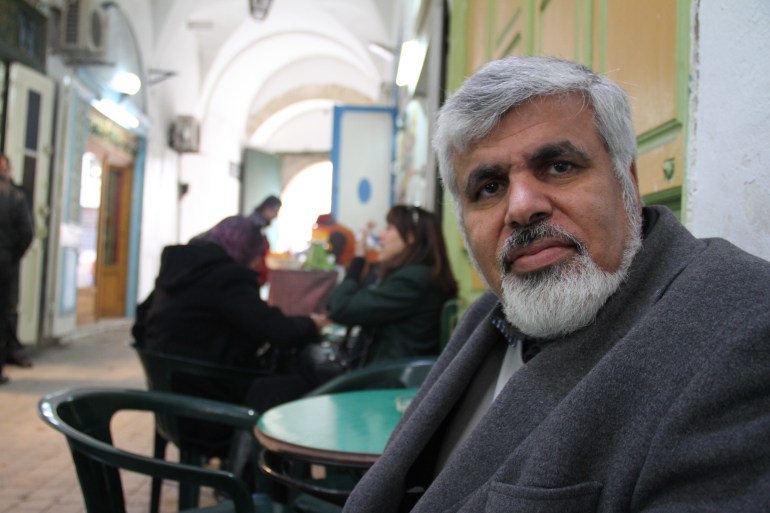Families of jailed Tunisian politicians want UK to sanction Saied
Family members call for sanctions on Tunisian officials, including the president, after a wave of arrests of opposition figures.

London, England – Families of jailed Tunisian opposition figures have filed a legal appeal calling on the United Kingdom to impose sanctions on Tunisian officials, including President Kais Saied, for gross human rights violations.
The appeal was filed under the UK’s Global Human Rights Sanctions Regulations 2020. The UK government can impose sanctions, including travel bans and asset freezes, on entities or bodies it believes were involved in past or current serious human rights violations under the law.
Keep reading
list of 4 itemsIt was not Saied who introduced anti-Black racism to Tunisia
Tunisia’s interior minister announces resignation
Tunisian president names ally as new interior minister
“We are asking the foreign secretary [James Cleverly] to review [our application] urgently and impose sanctions against these particular individuals who we’ve identified,” Rodney Dixon KC, the lawyer in charge of the case, said at a news conference in London on Wednesday.

The legal application also sought sanctions against Tunisia’s Justice Minister Leïla Jaffel, Defence Minister Imed Memmich, former Interior Minister Taoufik Charfeddine and former acting Interior Minister Ridha Gharsallaoui.
The request was made on behalf of the families of Noureddine Bhiri, a member of Tunisia’s parliament and former Justice Minister; judge and former Public Prosecutor Bechir Akremi; and the opposition parliamentarians Said Ferjani and Ridha Bouzayene. All have been subjected to violent acts while in prison.
“Those who are responsible for these outrageous violations will not be free to travel and continue their life and business as though everything is normal. [Sanctions are] there to send a signal that these abuses must end,” Dixon said.

Severe human rights violations
Since July 2021, Saied and his government have been accused of committing severe human rights violations, including the continuing arrest, torture and killings of opposition figures.
Kaouther Ferjani, the daughter of Said Ferjani, 68, said her father went on a hunger strike in protest against his arrest and imprisonment, which she said have been conducted without any evidence.
“For him, this was the only way to protest the sham hearings he and his fellow political prisoners were subjected to,” Kaouther said at the news conference in London.
She said her father claimed: “The case against me is nothing [but] an attempt to whitewash and normalise a coup and take revenge against its opponents.”
Said Ferjani spent 20 years in political exile in the UK before returning to Tunisia during the Arab Spring in 2011. A leading figure in the main opposition Ennahda party, he had been arrested and tortured by former President Zine El Abidine Ben Ali’s government.
Kaouther told Al Jazeera she feared for her father’s safety as he has been kept in an overcrowded jail cell with more than 100 people. She said she has not been allowed to visit or contact her father, aside from receiving weekly updates from lawyers.

Crackdown on opposition voices
The arrests of the four opposition figures were part of the Tunisian government’s crackdown on dissenting voices as President Saied’s rule has continued to take an increasingly authoritarian bend.
“The recent crackdown has been particularly concerning. It has been condemned by the EU parliament. It has been condemned by the UN and by many other bodies as well. Those words are to be welcomed but we say without the bite of sanctions, there is little hope that things will change,” Dixon said.
For the past two years, Tunisia has been in a political and economic crisis, beginning with Saied’s unilateral suspension of the democratically-elected parliament and the dissolution of the government.
The opposition has referred to Saied’s rule as a “constitutional coup” as he has taken control of the judiciary, in addition to Tunisia’s electoral body. Protests against Saied’s consolidation of authority have been met with a heavy-handed police response.
Last month, Saied said those arrested were “terrorists” who had “plotted against state security”.
He also threatened judges handling the cases and said, “Anyone who dares to acquit [those arrested] is their accomplice.”